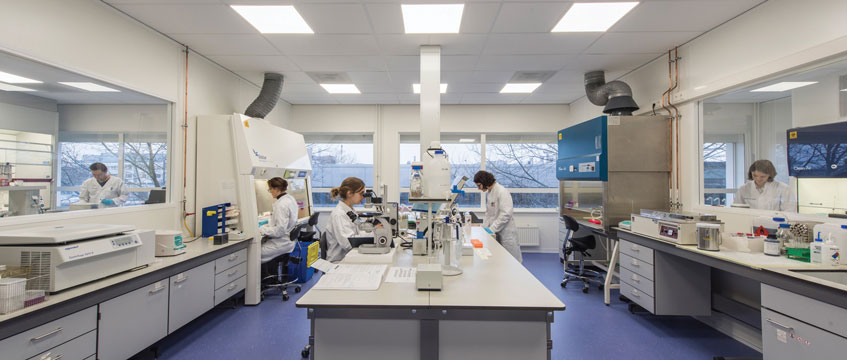COMMENT The recent tie-up between Canary Wharf and Kadans demonstrates the enthusiasm of traditional UK real estate investors and developers to access the lucrative life sciences market. By partnering with an experienced developer in the sector, Canary Wharf will benefit from in-depth sector knowledge gained by Kadans over many years of developing lab space, firstly overseas and more latterly in the UK market.
So what are the benefits to UK investors and developers looking to their overseas counterparts for guidance, best practice examples and a partnership to assist them in making the most of the opportunity that the growth in this market presents in the UK?
Occupier demand is currently booming, but the life sciences sector is highly competitive to enter from a developer perspective. Not only is land in the right location difficult to come by and expensive but building lab-capable space is much more costly than an office building of the same internal area. Therefore, it is critical that the right decisions are made early on about how the buildings are designed and fitted out.
Unique requirements
An experienced life sciences developer or operator of laboratories already knows and understands the tenant market and the unique requirements of lab space. They see that re-purposing of existing stock is often a non-starter if the intention is for the building to be fitted as laboratories or at least “lab-capable” unless the fundamentals of the building already work.
Likewise, a life sciences developer knows how to design new buildings to make the best use of the available space. Any floors in the building will need a higher floor to ceiling height than an office. Laboratories need increased utilities capacity to support all the equipment likely to be required, including backup generators. Most lab spaces will need easy and secure access to chemical storage and sufficient loading bays and transport lifts. The experienced developer knows the types of equipment that will likely be needed by its eventual tenants, how much electricity they might use and what the tenant fit-out may look like. They may already know and work with an experienced team of professionals who knows how to design and build the space.
A further benefit may be the existing relationships that an established life sciences developer has, perhaps in other areas of the country or even other jurisdictions. Life sciences is an international sector – you only have to look at the breadth of companies developing Covid-19 vaccines to appreciate that.
Many established life sciences and pharmaceutical companies in the US, for example, will have little or no experience in the UK property market. This is where an established developer, perhaps in partnership with a UK entity, can add value to prospective tenants. Guiding them through the process of taking their first UK premises, from finding the right location, ensuring the premises are going to be suitable for the particular requirements of that tenant, making introductions to local professionals with sector knowledge and generally assisting with making a move to a new jurisdiction as smooth as possible.
Win or lose
From the perspective of the life sciences developer, why might they need their inexperienced UK counterpart? The simple answer may be that the UK entity has land and local market knowledge, perhaps including relationships with the all-important local planning authorities. A UK investor or developer with an established reputation and a track record of delivery may be favoured in competitive tender scenarios, which could be the difference between winning or losing a pitch.
It is going to be very interesting to see whether the Kadans and Canary Wharf partnership is a new model for life sciences development in the UK market. The opportunities in the market are clear for those that can combine the right sector development expertise with local knowledge and access to or existing ownership of land in the right location. The benefits to each side are obvious, and we might expect to see more tie-ups like this in the coming months.
Louise Ward is a partner at Charles Russell Speechlys











